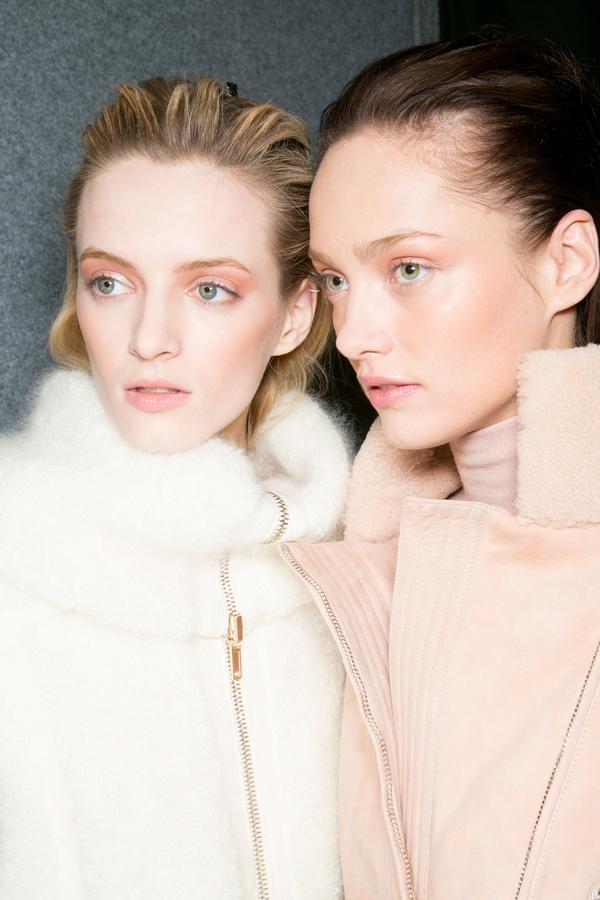Ugly truth of fashion's model behaviour
Interviewed a Fashion Model in NYC that doesn't want his/her name printed in my blog...
This is the kind of remark I often hear about my efforts to establish fair labor standards for models working in the American fashion industry.
Modeling is a seemingly glamorous profession, and models are certainly
not the people you picture when you think of bad working conditions. But
wipe off the sheen and another reality emerges.
At 29, I have worked as a model for over half my life, and
I'm the first to admit that I've been lucky in my career. I have worked
with some of fashion's most talented, creative people as the face of
some of the industry's most recognized brands. I enjoy modeling, a job
that not only paid my bills, but also allowed me to put myself through
school. I have no reason to speak negatively about an industry that has
given me so much. And, yet, I can no longer stay silent about rampant
abuses that I have experienced firsthand.
The modeling business today is unregulated and relies on a
compliant labor force of children.
Sexual abuse and systematic theft
occur at the highest levels of the industry, and because models are
considered to be "independent contractors", the rule of law in terms of
workplace standards does not exist. Sadly, the notion that fashion is
frivolous encourages a dismissive, misogynistic attitude toward the
industry's young workers, and it is precisely this sentiment that allows
the abuse of vulnerable young people to persist.
When I entered the business as a 14-year-old schoolgirl, I
was routinely asked to do topless shoots and pose seductively. To this
day, in an industry dominated by minors, there is no policy of informed
consent for jobs involving full or partial nudity. A recent survey shows that 86.8% of models have been asked to pose nude at a casting or job without advance notice.
Sexual abuse is a pervasive problem. Consider just the last few years: in 2008, fashion designer Anand Jon was found guilty of rape and multiple counts assault on aspiring models, who ranged from 14 to
21 years old.
Last year, models began to speak out in numbers against Terry Richardson, one of the industry's most powerful photographers, who has been accused of pressuring models to disrobe at castings and
conducting shoots that involve what he claims are consensual sex acts
performed on him by models. (Among Richardson's regular clients are
H&M, Vogue, and GQ.)
What
is worse, in an industry where the majority of models start their
careers before age 16, most working unchaperoned and far from home, the
incentive to say nothing in order to keep your job creates an
unconscionable environment of coercion.
Lack of financial transparency is also a significant problem. Last year, three models brougt a lawsuit against their New York agency Next
for allegedly withholding $750,000 of their earnings.
Like the
plaintiffs, I also left Next after becoming increasingly wary of their
opaque bookkeeping, and I was paid the outstanding earnings they owed me
only after my lawyer threatened legal action. As a model, simply
getting paid can be a major issue, and, of the models who achieve a
coveted spot walking in New York fashion week, many, in fact, are never
paid at all; instead, working for free or for clothes. Needless to say, a
tank top doesn't pay the rent.
To combat this systemic abuse, I recently formed the Model
Alliance, a nonprofit organization that aims to give models in the
American fashion business a voice. With the support of other top models
(Coco Rocha, Doutzen Kroes, Crystal Renn, Shalom Harlow), industry
leaders, and the Fashion Law Institute at Fordham Law School, we
produced a draft models' bill of rights to demand fair treatment from modeling agencies and clients.
Our backstage privacy policy,
endorsed by Diane von Furstenberg and the Council of Fashion Designers
of America (CFDA), aims to protect models from invasive photography
while they are naked and changing backstage at New York Fashion Week.
The Model Alliance has also partnered with Actors' Equity and the
American Guild of Musical Artists (AGMA), members of the AFL-CIO,
America's largest federation of trade unions, to establish Model
Alliance Support, a confidential grievance service to members who have
experienced any kind of abuse.

Our glossy industry often provokes superficial criticism of
models' weight and body image, but the fact is that most models' clout
in their workplace is as tiny as their size-zero frames. It is time to
delve beneath the surface and consider models' concerns from a labor and
public health standpoint. Photographs of models pervade our culture,
and we cannot promote healthy images without taking steps to protect the
faces of this business. This effort starts with giving the faces of
this business a voice. Correcting these abuses starts with seeing models
through a different lens: not as dehumanized images, but as human
beings who deserve the same rights and protections as all workers.


_jpg.jpg)



No comments:
Post a Comment